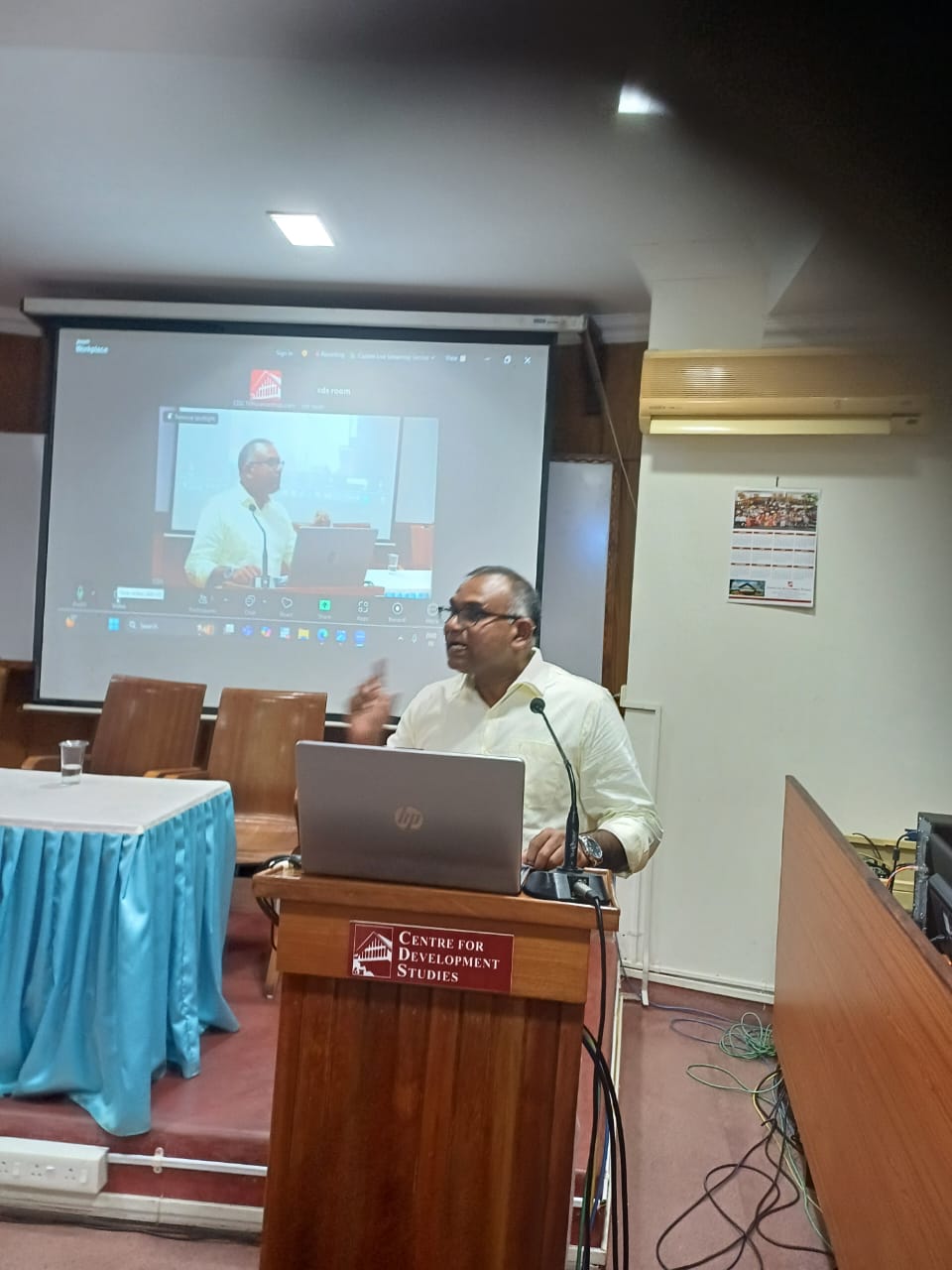Dr Sambaiah Gundimeda, Associate Professor, Politics, SIAS was invited as a resource person by the Centre for Development Studies, Trivandrum, for its ICSSR-sponsored Capacity Building Programme, “Scheduled Castes and Scheduled Tribes – Sub-Plan and Sub-Classification” (6-7 February 2025). He delivered a talk titled “Justice at Last: Examining the Supreme Court’s Verdict on Sub-Classification.”
Dr Gundimeda highlighted how affirmative action has improved Dalit representation but has disproportionately benefited dominant SC sub-groups like Chamars, Mahars, and Malas, while marginalised groups like Madigas and Rellis remain excluded. This disparity led to demands for sub-categorisation, notably by the Madiga Reservation Porata Samithi (MRPS) in Andhra Pradesh.
The Supreme Court’s E.V. Chinnaiah (2004) ruling deemed SCs a homogeneous group, barring states from internal classification. However, Davinder Singh (2014) reopened the debate, culminating in the landmark 2024 ruling that allowed sub-classification based on empirical data. The judgment, reinforcing substantive equality, acknowledges intra-group disparities but raises concerns about implementation and political misuse.

Debates persist over introducing a “creamy layer” filter in SC/ST reservations to prevent monopolisation by privileged sections. Moving forward, a data-driven, equitable distribution framework is essential to uphold the principles of affirmative action while addressing internal inequities.